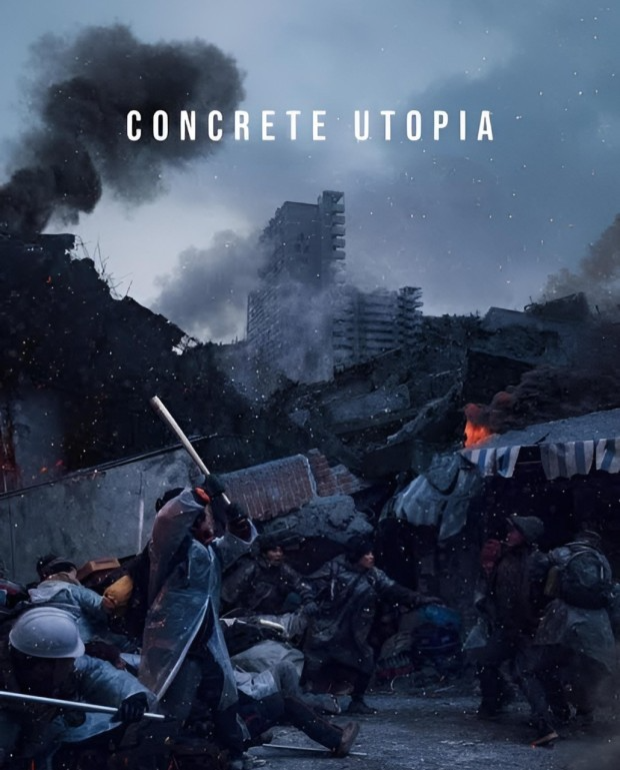This post is about the K-movie ‘The Outlaws’ Review and Backstories
K-movie ‘The Outlaws’ Review
Personally, my favorite among the crime city series is the first movie, ‘The Outlaws’. It was remarkably brutal, yet incredibly enjoyable. Despite the initial impression that you didn’t appreciate harsh gangster films, I found myself captivated by the wild and endearing characters of Marbley and the thrilling plot twists. The performance of the lone child actor, Um Ji-sung, was also commendable. The inclusion of the activities and challenges faced by the violent squad detectives added a realistic touch, making it even more engaging.
The movie is known to be an adaptation based on a true story of Korean gang detectives dealing with an organization that transcended criminal boundaries from China, instigating terror throughout the entire city. As it represents a person involved in a real event, the performances of the two main actors, Ma Dong-seok and Yoon Kye-sang, significantly contribute to the film’s overall quality.
Ma Dong-seok, portraying Monster Detective Ma Seok-do, showcased powerful one-punch action combined with his unique humor, creating an invincible character. Renowned as a representative Korean actor, Ma Dong-seok, beloved for his role as Marbley, brought 15 years of experience to his portrayal of a monster detective in the violent underworld. Despite typically playing tough roles, he adeptly captured the rough yet warm charm of the character Ma Seok-do, showcasing his charismatic and humorous strengths.
Yoon Kye-sang’s remarkable acting transformation in the movie is noteworthy. Playing the role of Jang Chen, the boss of a vicious organization, Yoon Kye-sang delivers the standout performance in the film. He immersed himself in the character throughout the filming period, maintaining tension and authenticity for Jang Chen, the formidable crime boss.
Known for his roles in positive characters and melodramas, Yoon Kye-sang surprised everyone by seamlessly transforming into “Jang Chen,” a heinous and ruthless emerging crime boss. He even went the extra mile by learning the Yanbian dialect and mastering the use of a knife as his primary weapon, spending a month at an action school for preparation.
Despite the movie’s harsh and brutal elements, such as violence and murder, comical scenes provide laughter throughout, creating a well-balanced blend of violence and comedy.

Backstories
Director and Ma Dong-seok
The director and the lead actor share a close friendship, with Ma Dong-seok deeply involved from the initial drafting to the planning stages. The movie was designed to provide a refreshing and novel development, deliberately avoiding clichéd plots common in movies and dramas. This decision contributes to the film’s upbeat atmosphere, minimizing any disturbing, depressing, or dark elements. Some viewers even find it challenging to categorize the film as either a comedy or a crime movie due to its delightful nature.
Ma Dong-seok and a Real Detective
Ma Dong-seok, the main actor, has a close relationship with Lieutenant Yoon Seok-ho, the real-life inspiration for the main character Ma Seok-do. Drawing inspiration from Yoon’s story, Ma Dong-seok played a pivotal role in planning the film. Detective Yoon Seok-ho, originally from the Geumcheon-seo Criminal Division, held the same rank and position depicted in the movie, and the case portrayed closely aligns with one he was involved in. As a tribute, Detective Yoon Seok-ho is acknowledged in the film’s credits as an advisor.
Best Supporting Actor Jin Sun-gyu
Jin Sun-kyu, recipient of the Best Supporting Actor Award, and other supporting actors delivered exceptional performances, partly due to Ma Dong-seok and Yoon Kye-sang voluntarily adjusting their roles. Jin Seon-gyu took over a brutal scene originally designated for Yoon Kye-sang, and Ma’s persuasive lines influenced the director to consult with actual detectives and even consider changing the sequence of scenarios.
Container Office
The use of a container building as an office by the powerful team in the movie mirrors the actual appearance of the Geumcheon Police Station at the time. The station was particularly aged because of a relocation plan. The Nambu Police Station in Sillim-dong, Gwanak-gu, became the Seoul Geumcheon Police Station in 2006 due to jurisdiction changes, necessitating relocation to Geumcheon-gu. However, delays caused by the military unit’s failure to vacate the initially designated site led to the use of a container building as a temporary office in the old and narrow building. Geumcheon Police Station eventually concluded its container phase in December 2018, moving to a new building.
True Story Behind “The Outlaws”
The film “The Outlaws” is based on the real-life account of violent crime squad detectives taking on a Chinese gang. In 2004, the Seoul Nambu Police Station, now known as Geumcheon Police Station, dismantled the Wang Geonipa. Subsequently, in 2007, the Seoul Metropolitan Police Agency’s regional investigation unit targeted the Yanbian Black Saipa organization. Garibong-dong, situated in Guro-gu, Seoul, served as a prominent Chinese residential area. During the early 2000s, the influx of Chinese residents into this area led to the flourishing of gangs, including Heilonggangpa, Yanbian Black Sapa, Bampa, Pumpkinpa, and Wang Geonpa, representing different branches of China’s black society.
A fierce power struggle unfolded in Garibong-dong, with a notable gang fight between factions of the black society occurring at Namgu-ro Station in May 2002, resulting in the death of a group member. Wang Geon, the leader, established a code of conduct, intervening in the interests of entertainment establishments and construction sites run by ethnic Koreans in China. As Wang Geon’s faction gained power, they initiated a sweep at the Seoul Southern Police Station, booking 14 people on charges of attempted murder. However, Wang Geon’s faction eventually faced a collapse, paving the way for the rise of the Yanbian Black Sapa.
Actual street situation at the time
In the actual street situation at the time, merchants in Garibong-dong were reluctant to report incidents of violence and extortion due to fear of retaliation by the Yanbian Black Sapa. Merchants resorted to buying body armor and conducting business cautiously. There were instances, like a karaoke owner being stabbed, where victims refrained from reporting out of fear. Many members of the black community entering Korea had criminal records in China, often committing crimes like murder, and they entered Korea after altering their family registers to avoid detection by Chinese authorities.
These individuals, upon entering Korea, joined Chinatown and acted as gang members. They would even send additional gang members to retaliate against those who had fled to Korea. The challenge lay in the difficulty of exposing their true identities, making it impossible to track them down, even if fingerprints were collected at crime scenes. Additionally, even if they committed crimes in Korea and were deported to China, they could re-enter using family register laundering or fake passports.
The movie accurately portrays merchants in Garibong-dong hesitating to report crimes, fearing retaliation by the Yanbian Black Sapa. The real-life fear among merchants was significant, given the potential for violent reprisals. Ultimately, in April 2007, the Seoul Metropolitan Police Agency’s regional investigation team, led by Jang Young-kwon, launched a massive arrest operation, raiding Jindu Command and Chinatown in Garibong-dong. The operation resulted in the arrest of 32 leaders and members, with seven individuals taken into custody.


